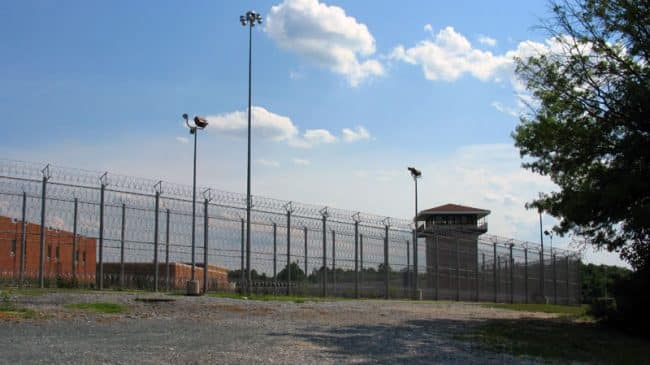After a couple of years of apparent progress in convincing federal lawmakers to reduce America’s incarceration rates and reform mandatory minimum prison sentences, Republicans in Congress are drafting a new border security bill that goes in the opposite, and wrong, direction.
The new bill, currently being drafted, includes provisions from two previously filed pieces of legislation: Kate’s Law and Back the Blue Act, both of which would create harsh mandatory minimum sentences for certain crimes.
The “Back the Blue Act” is designed to hand out harsher mandatory sentences – in some cases life without the possibility of parole or the death penalty – for individuals convicted of killing police officers or judges. It would also make it a federal crime to assault any law enforcement officer whose agency receives federal funding, which is basically all of them at the local and state level.
The Washington Post’s Radley Balko, author of the book “Rise of the Warrior Cop: The Militarization of America’s Police Forces,” highlighted how this would take power away from local decision-makers in cities and counties: “This bill would let a Trump-appointed district attorney overrule local officials if he or she didn’t like the way they were handling a case involving an assault or killing of a cop. For example, a number of jurisdictions across the country have recently elected district attorneys who promise a more reform-oriented approach to law enforcement.”
The “Kate’s Law” component, named after the high-profile 2015 killing of Kate Steinle in San Francisco, would cause individuals convicted of misdemeanors, or other offenses, to be sentenced to a mandatory minimum of five years in prison if they’re caught re-entering the country after being deported, among other things.
This legislation does not distinguish between individuals convicted of nonviolent misdemeanors from those who have been convicted of more serious violent offenses, nor between various reasons for re-entering the country. Someone convicted of a minor offense when they were a teenager could later be locked up for five years in prison just for being caught attempting to re-enter the country years later to donate a kidney to a relative, for example.
Penalties already exist for committing the crimes these proposals cover. Creating new federal crimes and/or harsh mandatory minimum prison terms would not make anyone safer and has the potential to negatively impact many California communities.
According to Pew Research Center, California has the most undocumented immigrants of any state, with an estimated 2.3 million at the end of 2014 – or 6 percent of California’s total population. This type of law would damage the relationships between those communities and law enforcement. Additionally, according to analysis on “Kate’s Law” from the U.S. Sentencing Commission, the new five-year mandatory minimum would increase the federal prison population by a staggering 60,000 inmates over the next five-years, a 28 percent increase. This would cost taxpayers roughly $2 billion per year in additional wasteful government spending.
Mandatory minimum sentences, usually touted as tough-on-crime measures that are necessary to lock up criminals and deter others from committing crimes, have been ineffective at accomplishing those goals. Instead, as California experienced with its now-amended Three-Strikes law, these one-size-fits-all laws cause low-level, nonviolent individuals to be sentenced to decades in prison with no added public safety benefit, and at an enormous cost to taxpayers.
California has had great success scaling back mandatory minimum sentences, and a number of other states – including several conservative states – have moved away from these tough laws with great success. Many states have reduced their prison populations and violent crime rates simultaneously over the past several years.
While this new legislation will be sold as an effort to protect law enforcement officers and crack down on crime and illegal immigration, it will only serve to divide communities from their law enforcement officers and cost taxpayers billions of dollars a year. The law would not reduce crime. It is simply another attempt to revive the already failed policy of mandatory minimums. Californians would be wise to voice their opposition to this misguided effort.

